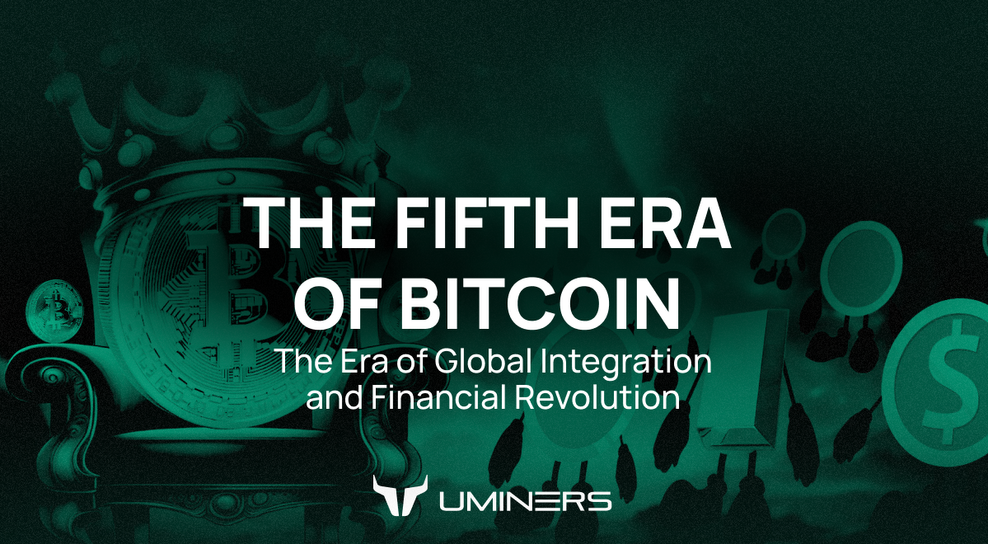
Introduction
In recent years, Bitcoin has undergone not only technical and economic transformations but has also established itself as a global force in the financial realm. Its development can be divided into several key phases, each characterized by its own distinct features, challenges, and opportunities. We have explored potential future scenarios, considering how these eras—from the early steps to possible futures—might alter both the intrinsic nature of the inaugural cryptocurrency and its role in the global economy.
Beginning with the initial era, when Bitcoin was merely an experiment for enthusiasts and crypto-experts, we have traversed through progressively mature stages, from the formation of an economic system to its integration into mainstream finance. This article will focus particularly on how technological changes and shifts in the surrounding world impact the future of mining—from the first mining farms to integration with environmental and technological innovations.
As we examine the later stages of blockchain technology's evolution, we begin to see how cryptocurrencies, particularly Bitcoin, have the potential to transform not only financial systems but also the very structure of the economy, evolving from merely a means of saving to a foundation for new types of financial and energy models.
What does the future hold? One thing is clear: Bitcoin will continue to evolve, creating opportunities for new participants and traditional financial players alike. We stand on the brink of a new era where technology and economy intertwine in such a manner that what now seems impossible may become the standard of tomorrow.
The Fifth Era of Bitcoin
The fifth era represents an exhilarating, uncertain frontier where cryptocurrency enters a new phase of transformation. Whereas previous epochs were marked by struggles for recognition, technological advancements, and institutionalization, the fifth era will be a time of profound structural changes in the global economy, social systems, and the very nature of money.
This period will witness the full immersion of the first cryptocurrency into the mainstream. It is anticipated that Bitcoin will no longer be merely an alternative asset but will become a key component of the global financial infrastructure, potentially replacing or supplementing traditional systems. The fifth era is the time when Bitcoin may play a decisive role in constructing decentralized economies for the digital states of the future.
However, this journey will not be without its challenges. Bitcoin is poised to confront new obstacles: increased regulatory scrutiny, geopolitical competition, and the imperative to address environmental concerns. Concurrently, technological advancements such as Web 3.0, DeFi, and new mining solutions will open up new horizons.
The fifth era is not merely another phase of growth. It is a chance for Bitcoin to become the cornerstone of a new economic paradigm, where the principles of decentralization, transparency, and financial freedom are fundamental to the global structure.
Key Predictions and Scenarios:
Adoption Growth at the State Level
New countries may adopt Bitcoin as an official payment method: Following the example of El Salvador, several developing nations (e.g., in Latin America or Africa) might integrate Bitcoin into their financial systems to combat inflation.
Central Bank Digital Currencies (CBDCs) and Bitcoin: CBDCs will develop alongside cryptocurrencies but might use BTC as a reserve asset or standard.
Launch of Bitcoin ETFs: Several exchange-traded funds (ETFs) are expected to be approved in the U.S. and other countries, attracting significant investments from traditional funds.
Price Growth and a New Wave of Institutional Investors
Post-halving, the supply of new bitcoins will decrease again, typically leading to a price rally. Price forecasts range from $150,000 to $300,000.
Institutional investments: Major funds, sovereign wealth funds, and multinational corporations are likely to begin actively incorporating Bitcoin into their balance sheets.
Financial Revolution and Decentralization
Bitcoin could become a standard in international transactions and intergovernmental transfers, particularly amid declining trust in traditional currencies.
Development of DeFi based on the Bitcoin network: The implementation of second-layer solutions (such as the Lightning Network and Liquid) will foster the creation of new financial instruments and decentralized applications.
Technological Breakthroughs and Updates
Implementation of new scaling solutions: The Lightning Network is expected to become ubiquitous for micropayments. An increase in second-layer transactions is anticipated.
Innovations in security and privacy: New protocols may enhance anonymity and further secure transactions.
Energy Transformation of Mining
Transition to green energy: Mining is expected to increasingly utilize renewable energy sources, addressing environmental criticisms.
Decentralization of mining: Mining could become more distributed due to new technologies, such as home miners using renewable energy.
Competition with CBDCs and Regulatory Challenges
Strict regulation: Some countries may attempt to ban cryptocurrencies or restrict their usage to protect their CBDCs.
Possible Development Scenarios:
Optimistic Scenario:
Bitcoin becomes a global reserve currency or the digital equivalent of gold.
Integration into global financial systems and recognition by most countries lead to price stabilization and reduced volatility.
Pessimistic Scenario:
Heightened regulation or global prohibitions could slow cryptocurrency development.
Technological competitors, such as CBDCs or other cryptocurrencies, could partially displace Bitcoin.
Realistic Scenario:
Bitcoin maintains its status as a key digital asset for savings and protection against inflation.
Its role as a global payment method will strengthen, particularly in developing countries.
Role of Bitcoin in the Fifth Era:
Independence: Bitcoin will continue to empower individuals to control their finances, especially amid economic instability.
New Opportunities: The growth of the Bitcoin ecosystem will lead to new financial products and services.
Digital Gold: Bitcoin will solidify its position as a key asset for long-term value retention.
The fifth era may herald an age of global cryptocurrency integration, including Bitcoin, transforming it from merely a cryptocurrency into one of the cornerstones of a new financial system.






















